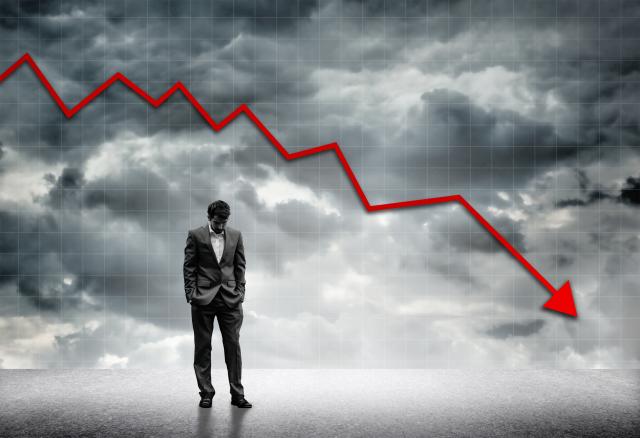Bankruptcy can damage your credit score for as long 7-10 years on average depending on the type and the amount of debts before bankruptcy was filed.
The Damage To Your Credit

Nobody wants to file bankruptcy due mostly to the fact that it is very detrimental to your credit score. At filing, the total credit rating of the filer can plunge from between 160 points and 220 points. In layman’s terms, that is enough of a drop to take a person’s good score and bring it down to a financially devastating, bad credit score.
But bankruptcy is often a better option than allowing debts to continue to accumulate, which can do even greater damage to a credit rating. With debts piling up, many in this financial situation find themselves making late payments, becoming delinquent on accounts, opening new lines of credit, etc… This can cause a mudslide of credit ruin. If you’ve found yourself in this predicament then it may be time to file for bankruptcy.
And, while bankruptcy can severely damage your credit score, that doesn’t mean that bankruptcy has to be the end of a good credit rating forever.
How Long Does Bankruptcy Stay On Your Record
There are two types of bankruptcy – Chapter 13 bankruptcy and Chapter 7 Bankruptcy:
• Chapter 7 Bankruptcy – Also known as a liquidation bankruptcy, a Chapter 7 bankruptcy will discharge most debts in a few months after filing, but the record of the bankruptcy itself usually remains active on a credit report for 10 years.
• Chapter 13 Bankruptcy – During a Chapter 13 bankruptcy many (and possibly all) debts will remain active while a 3-5-year payment plan is worked out with the collectors. Some debts may be discharged depending on the filing individual’s income. While a Chapter 13 usually comes off a credit report after 7 years some of these debts may remain active for longer.
Bankruptcies tend to vary greatly between individuals and situations, and while the above lengths of time that a bankruptcy remains active on a credit report are considered the general rule, there are many cases of the bankruptcy record dropping off much sooner, sometimes within only 2-3 years.
Rebuilding Your Credit
It’s never too early to start rebuilding your credit after filing for bankruptcy. While it is true that your credit score will most likely take a significant blow from filing for a Chapter 13 or Chapter 7, it may still be possible for you to acquire a secured credit card, auto loan, or rent-to-own loan. This is important, because, without a new line of credit, you may find yourself without any credit history once the bankruptcy and debts drop off after 7-10 years.
It’s also important to make sure that all of the discharged debts have stopped reporting to the major credit bureaus after the bankruptcy so that they aren’t bringing your credit score down unnecessarily.
Credit Absolute can help. By researching and challenging unfair items on your credit report, Credit Absolute can help to eliminate the erroneous charges that may continue to damage your credit after a bankruptcy. Contact us today.